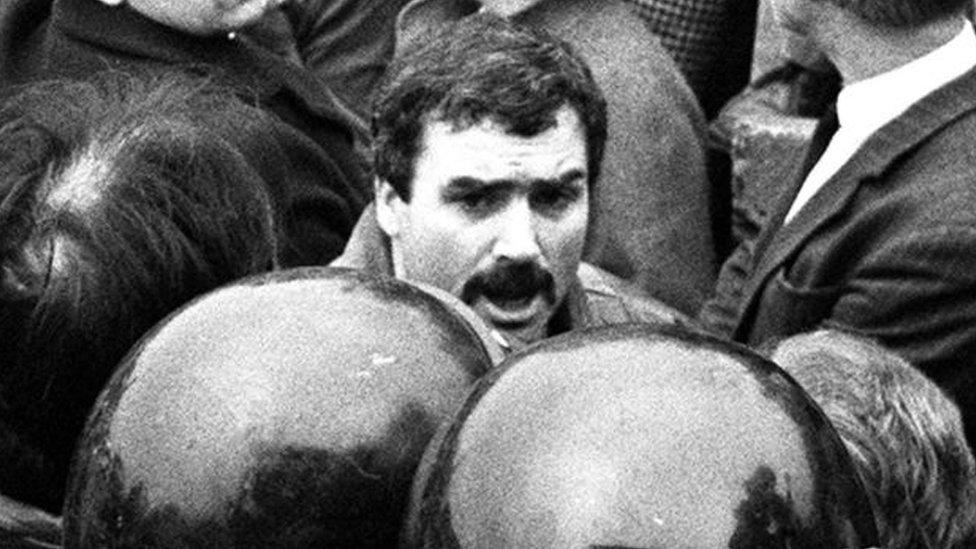Stakeknife: Report on top Army IRA agent a step closer
- Published

The report examines the actions of the Army's top IRA spy Stakeknife, widely believed to have been Freddie Scappaticci
A report on the activities of the British Army-run agent within the Provisional IRA known as Stakeknife is a step nearer publication after national security checks.
Its author, former police chief Jon Boutcher, said it had been cleared with "no changes or redactions".
He led the five-year investigation, known as Operation Kenova.
It examined the double-life of the agent, widely believed to have been Freddie Scappaticci.
When he died in April he was in his late 70s.
Operation Kenova, a £37m investigation, has been probing the agent's actions and a report on its findings is being readied for release.
Part of the process involved consultation with the Cabinet Office on whether any of its contents were prejudicial to national security.
During the 1980s, Stakeknife was operating within the IRA's internal security unit, the chief purpose of which was to find and execute suspected informers.
The highly-anticipated report also examines to what degree the state was complicit in his crimes, including multiple murders and acts of kidnap and torture.
It is believed to run to hundreds of pages.
There had been concern raised that the report could be censored or even blocked by UK intelligence agencies.

Jon Boutcher, a former chief constable of Bedfordshire, headed up Operation Kenova
However, in a recent update on the Kenova website, Mr Boutcher, the former chief constable of Bedfordshire, said he was "pleased to announce" it has not been altered.
"It has now been provided to the Public Prosecution Service of Northern Ireland to assess whether the report is prejudicial to any possible future prosecutions," he wrote.
"I anticipate this will be a relatively expeditious process and once completed I will be able to provide a further update on the progress to publication."
Although Mr Scappaticci died before the PPS could make any decisions on him, a number of other individuals could face charges.
Related topics
- Published11 April 2023

- Published6 April 2023

- Published11 April 2017

- Published1 October 2019

- Published29 October 2020
